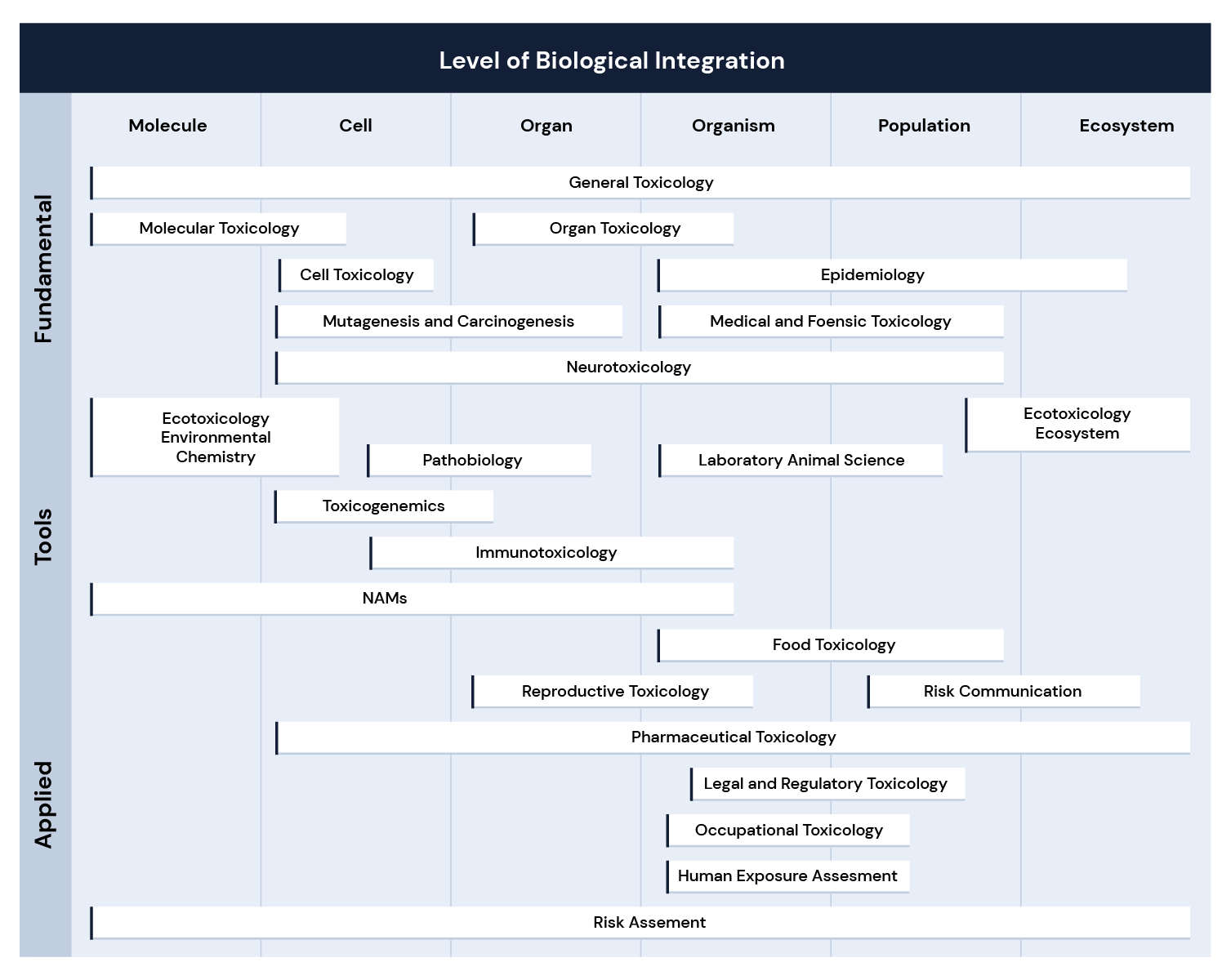Curriculum

The Postgraduate Education in Toxicology (PET) offers a modular training programme, which builds upon MSc-level skills and competences in toxicology. The PET programme provides the theoretical basis required for recognition and registration as a professional expert in toxicology. Details on the procedures and requirements for recognition and registration can be found on the websites of the Dutch Society of Toxicology (NVT) and the European Society of Toxicology (EUROTOX).
Single modules of the PET programme also form stand-alone courses, which are highly suited to provide in-depth knowledge in specific areas of toxicology for professionals from the private as well as the public sector and for PhD students with a background in toxicology.
For details on eligibility for the PET programme and on enrolment, please look under Application & Fees.
The PET programme aims to cover:

Objectives of the PET programme are to:
Language: the entire PET programme is taught in English.
Scheduling: Courses are scheduled annually or at least once every two years. For details see the Course schedule.
Organization: Each module is organised locally by a department of one of the participating universities under the educational and organisational responsibility of that department. For details see the About PET.